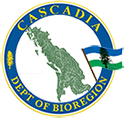2024 Whatcom Permaculture Design Course
Inspiration Farm 617 E Laurel Rd, Bellingham, WA, United StatesWhen: 13 days – June-July, 2024 Where: Inspiration Farm, Queen Mtn. Homestead, Whatcom County This multi-week course covers homesteading skills and strategies in a hands-on learning.100+ Hour Hands-On Community Focused Course This unique learning experience covers everything from growing food & repairing tools to mindfulness & relational skills. Students will come away with a holistic foundation for using these skills in their personal lives and professional careers Early Bird Pricing is Available. Online Information Session on Feb. 28th More info and Registration at: www.whatcompermaculture.com Course Format: This multi-week course covers homesteading skills and strategies in a hands-on learning community. The schedule is a mix of four in-person “Weekend Sessions” and a “Week-long Intensive” including camping and meals. Learning methods will include small and large group discussions, lectures, reflection/observation exercises, lots of hands-on skills practice and a diversity of reading, video and podcasts etc. Our “Whole Systems Approach” to learning includes; Regenerative Agriculture, Natural Building, Water Harvesting, Plant Propagation, Mindfulness Practices, Bioremediation, Animal Integration, Agroforestry, Landscape Analysis, Appropriate Technology, Tools for Healthy Relationships, Soil Science, Climate Change Mitigation, Sustainable Communities, and much more!







